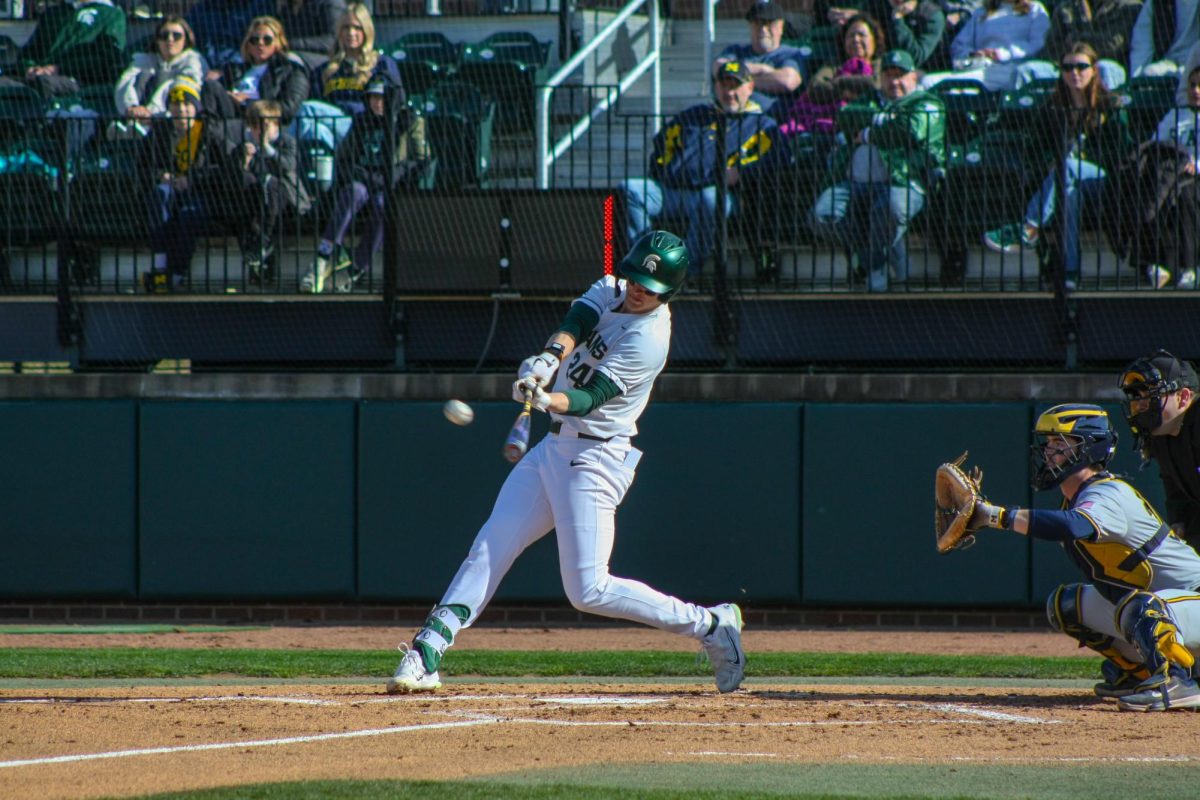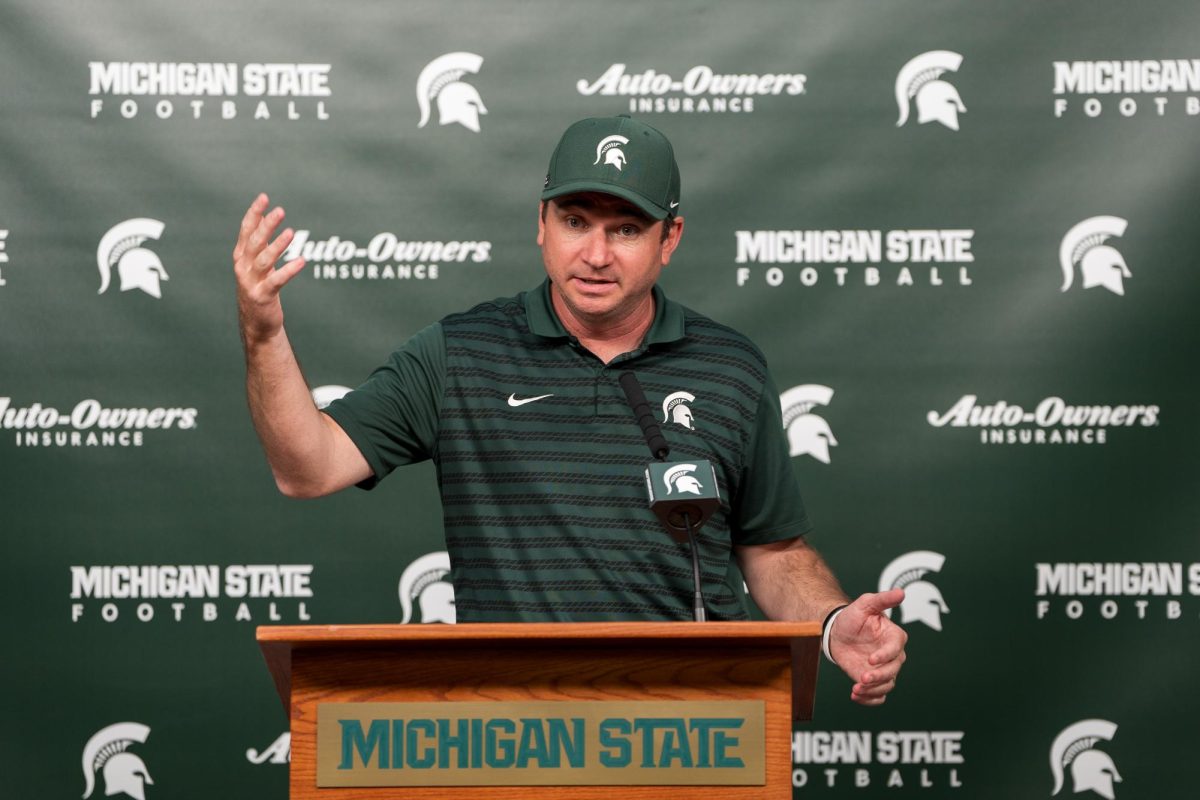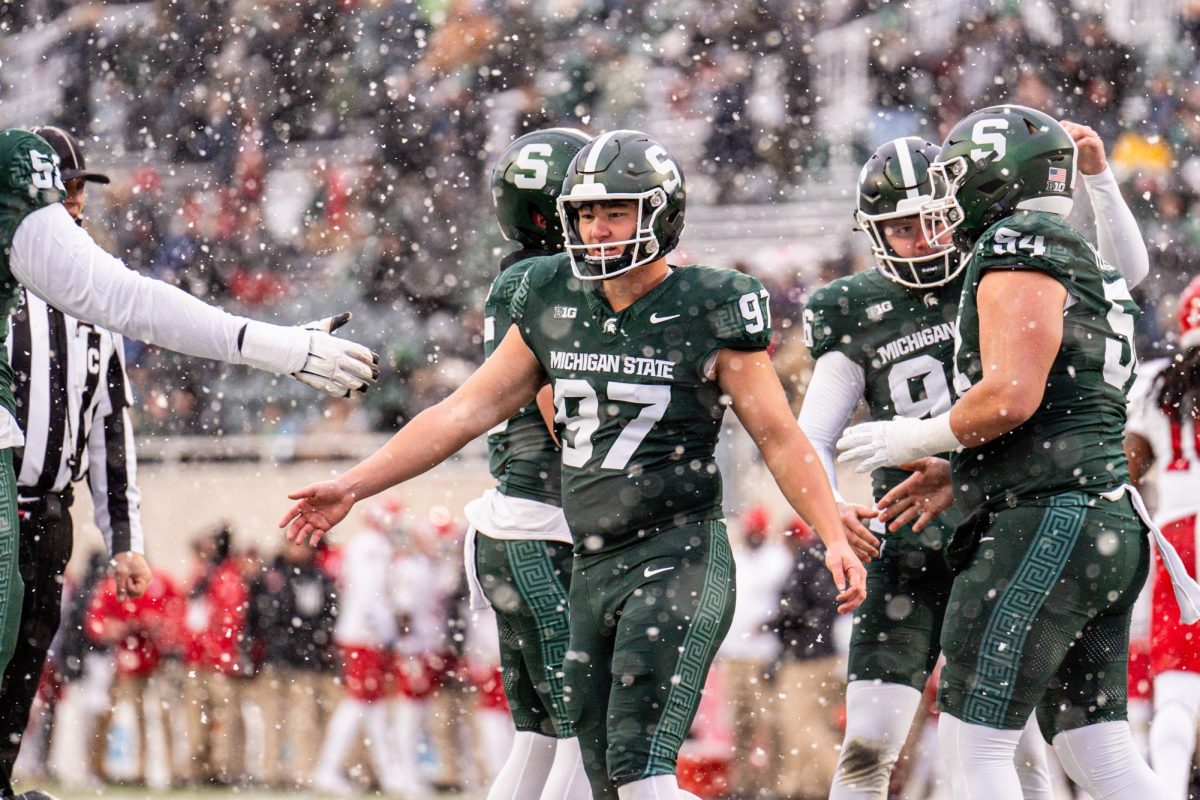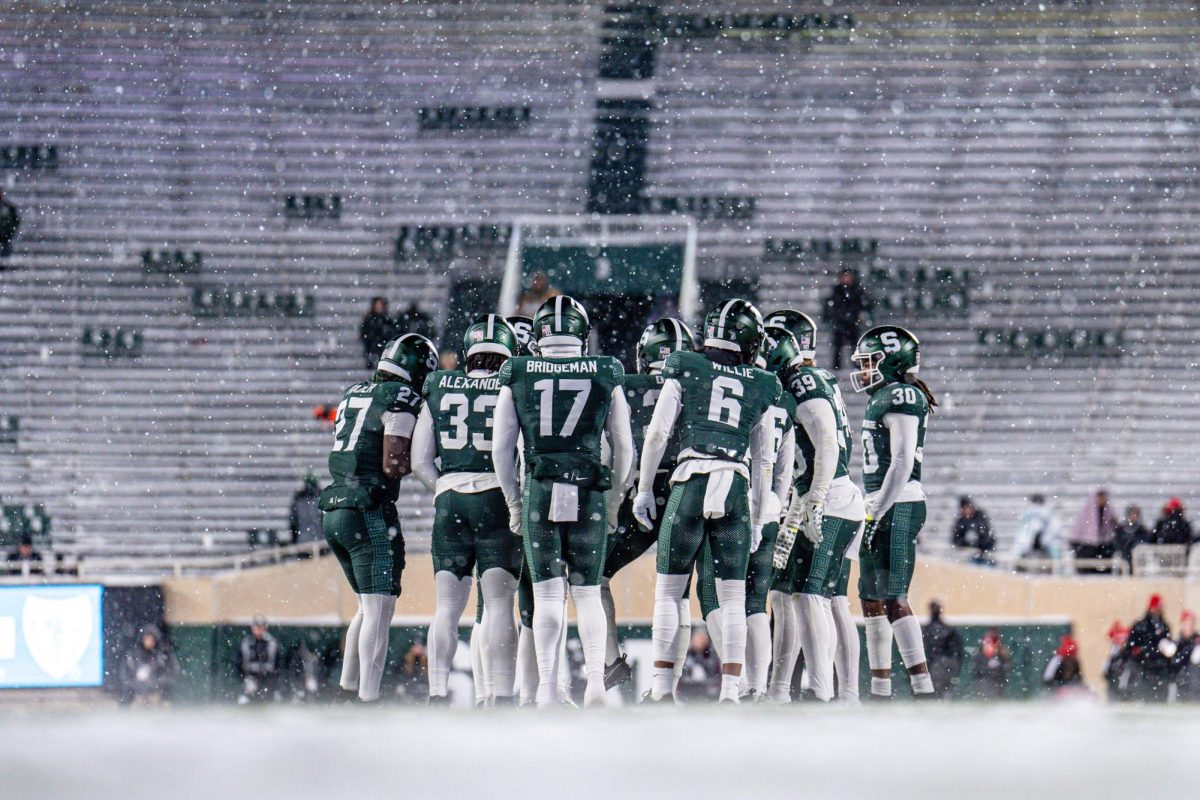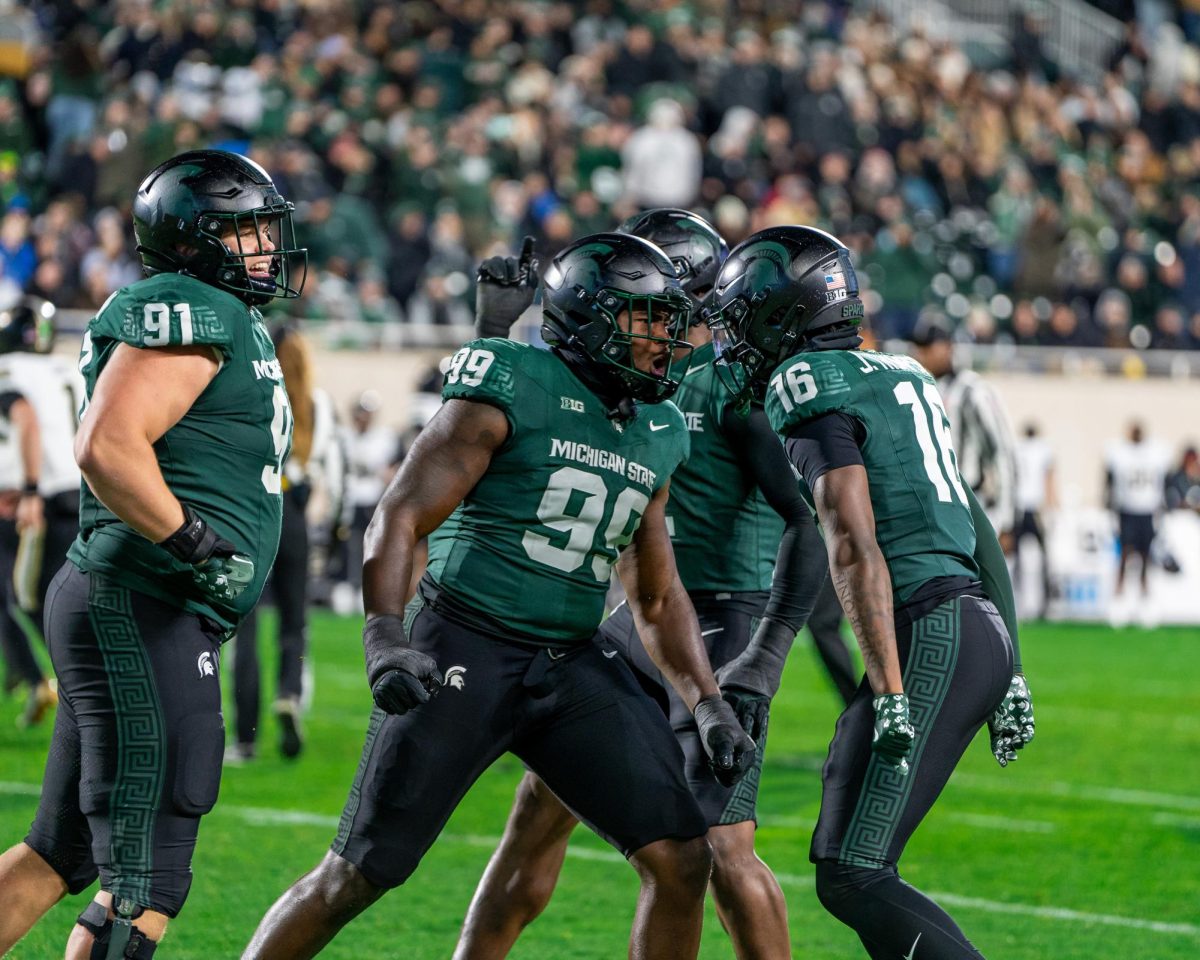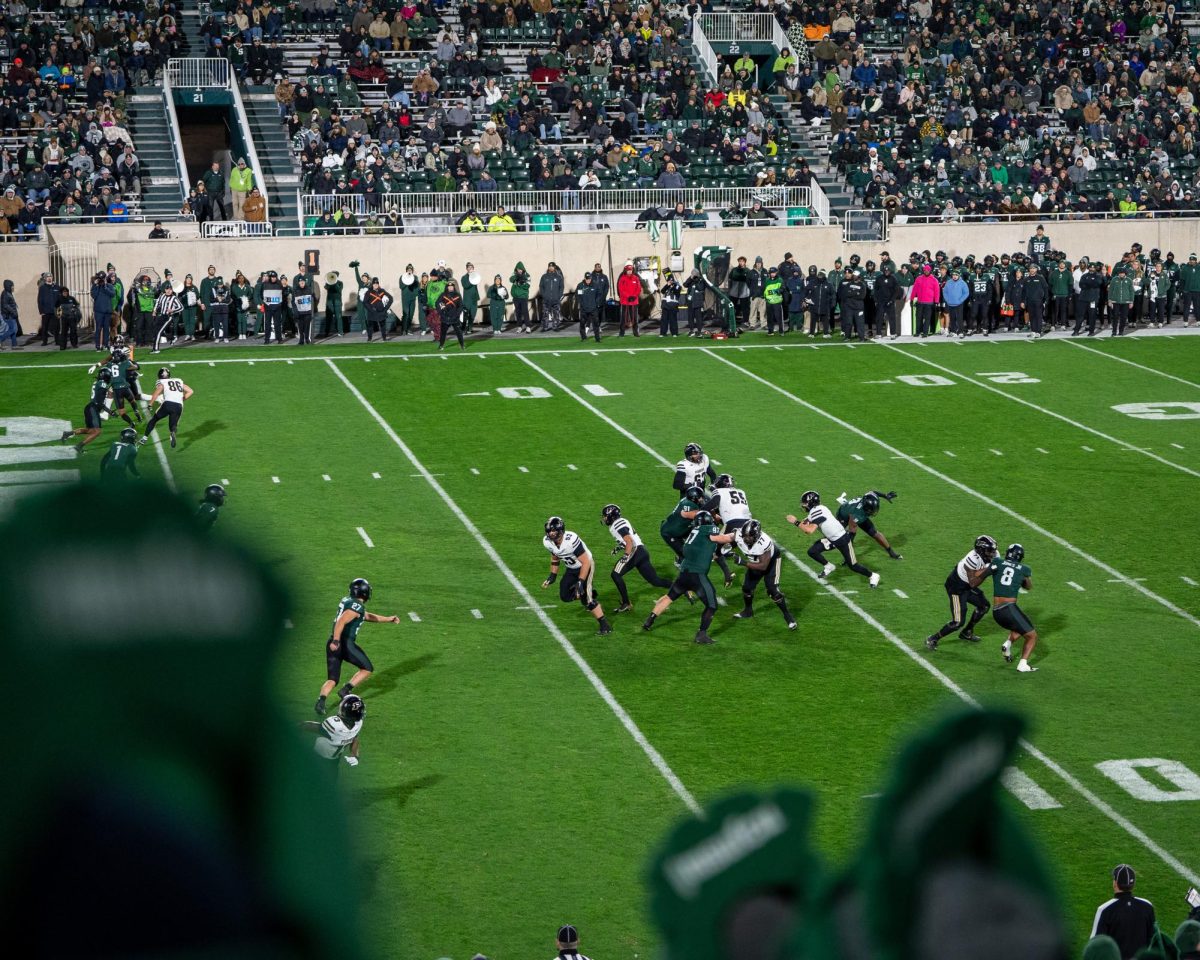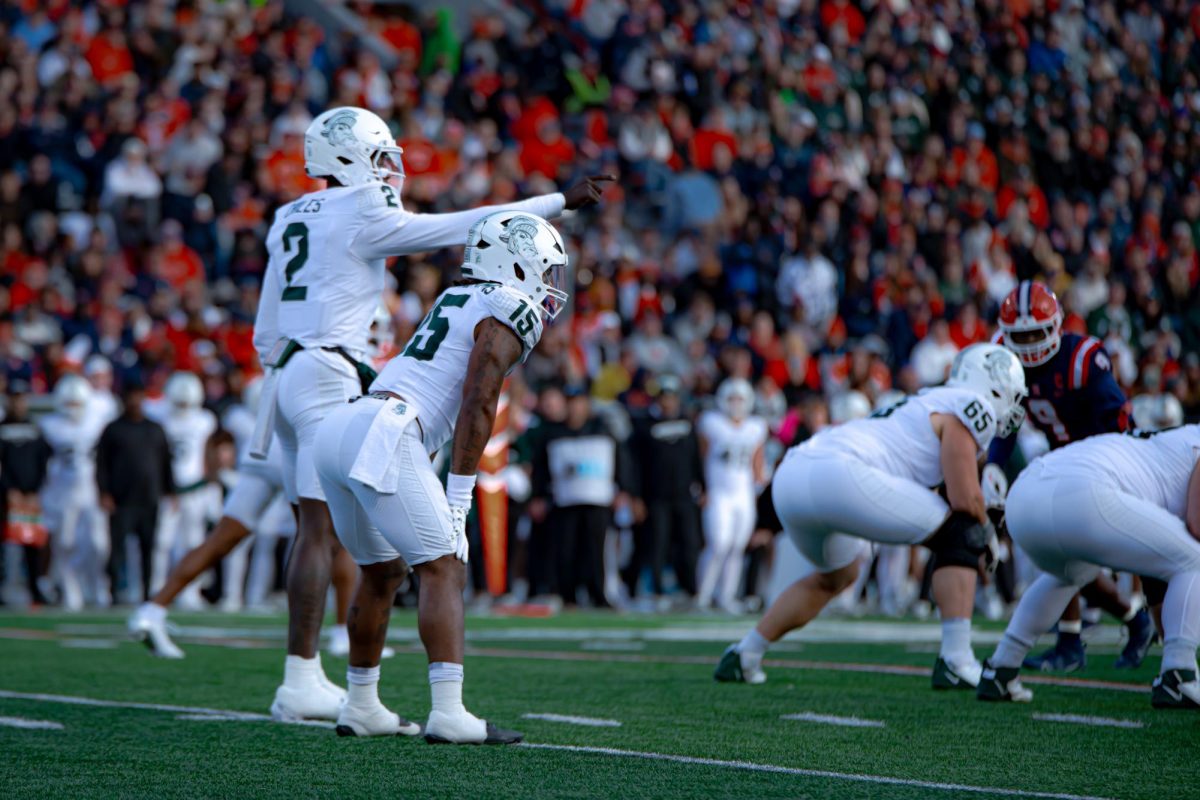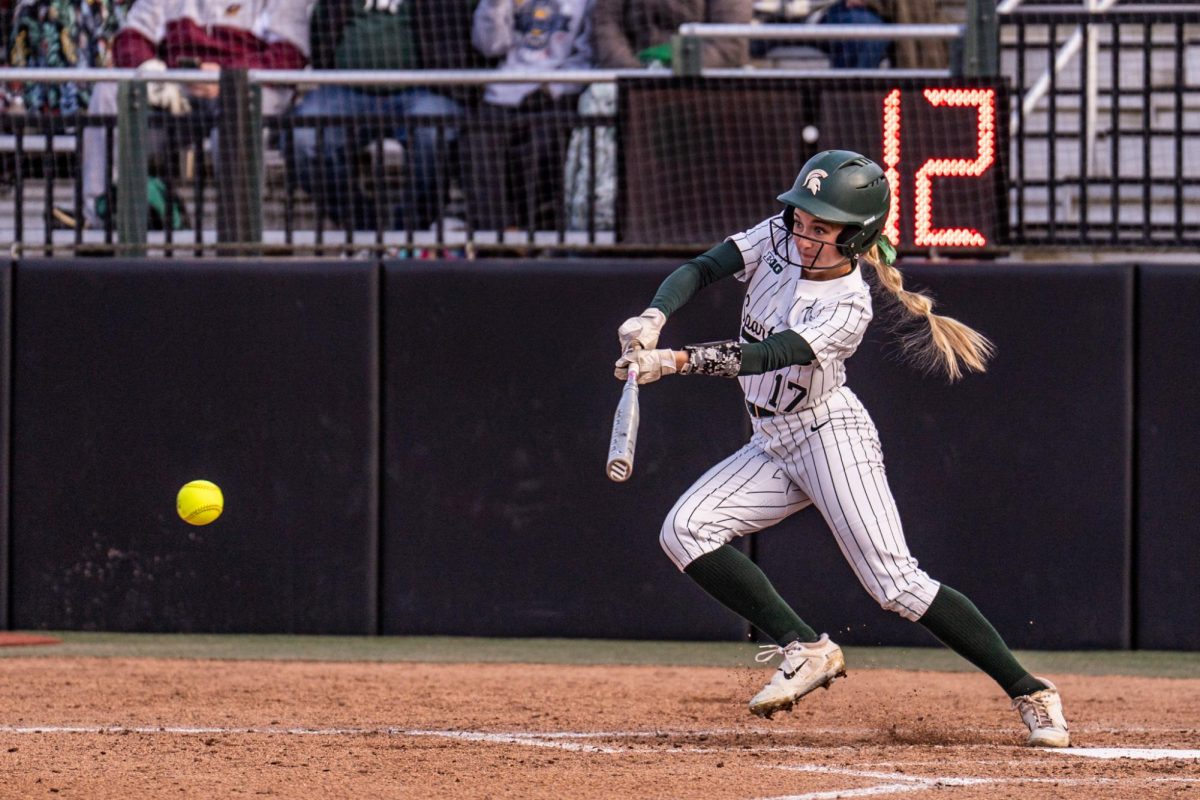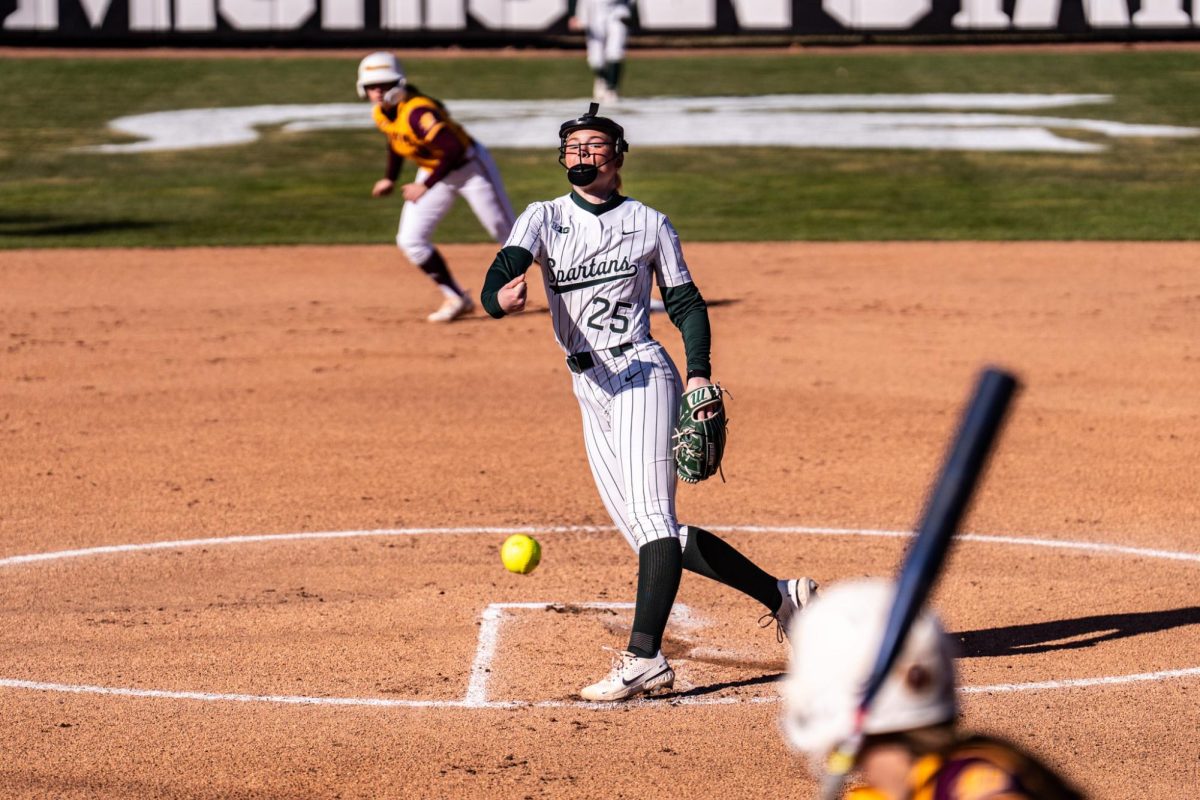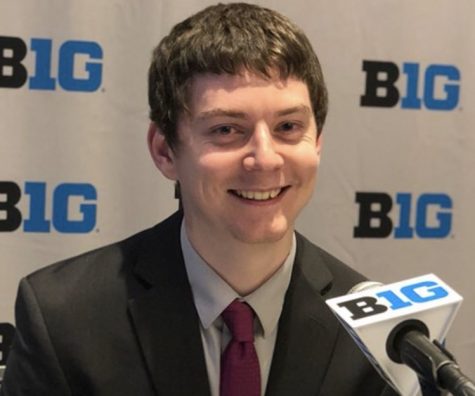EAST LANSING, Mich. — As it turns out, it is not hard to sugarcoat the losses of a team that went 3-9 the season before.
Michigan State played themselves off the field on Saturday night.
By the end of the third quarter, the iffy penalty calls and unnecessary reviews didn’t really matter. Notre Dame walked into Spartan Stadium and played like a team that is likely better than their loss to Georgia had suggested, winning by the comfortable score of 38-18.
Turnovers from the offense were again the main culprit. A Brian Lewerke interception returned for a touchdown following Notre Dame’s opening touchdown drive had the Spartans down by two scores just four and a half minutes into the game.
“When you look at it statistically, statistics can lie to you,” Spartan head coach Mark Dantonio said. “You still have the minus three turnovers and too many penalties….The conversations are always about ball security and about making good decisions, especially with your quarterback. He’s trying to make a play.”
An out route intended for Darrell Stewart on third and six was jumped and picked off with relative ease by Notre Dame’s Julian Love, and Lewerke couldn’t catch up, making the score 14-0 Notre Dame with most of the first quarter still to play.
It was a telegraphed pass, a mistake made by many quarterbacks, but one that compounded the misery for MSU. There were stops and starts for most of the game on offense, as Lewerke was accurate for chunks of the game.
[su_pullquote align=”right”]Every time MSU had a chance to snatch a foothold in the game, a penalty or turnover would cost them.[/su_pullquote]
The problem with Lewerke’s performance Saturday night was ball security. Early in the second quarter, after MSU’s defense had forced a punt near midfield, Lewerke tried too hard to make a play, trying to juke a defender well short of a first down, when going out of bounds seemed like the safer alternative. The result: a fumble deep in MSU territory, setting up a Brandon Wimbush passing touchdown to make the score 21-7.
“I tried to make a little extra play,” Lewerke said. “The fumbles obviously shouldn’t happen, we just have to learn from them.”
Every time MSU had a chance to snatch a foothold in the game, a penalty or turnover would cost them. Another crucial LJ Scott fumble sapped most of the energy from both the Spartan team and crowd.
On first glance, it looked like a clear touchdown up the middle from Scott halfway through the second quarter, until the ball was forced out at the goal line by cornerback Shaun Crawford and recovered by Notre Dame in the end zone. Adding insult to injury, Scott had the ball bounce off his arms in the end zone, adding a cruel twist to his third fumble of this young season.
There are no two ways around it: Scott has a fumbling problem this year. For a player that looked like he was on his way to a famed Spartan career after his game-winning run in Indianapolis two years ago, Scott has been a polarizing figure in the month of September around East Lansing.
The three fumbles this year match his total from the 2015 and 2016 campaigns, and it becomes increasingly difficult to consider him a player that is head and shoulders above his fellow tailbacks, Gerald Holmes and Madre London, despite receiving eleven carries against the Irish, compared to Holmes’ six and London’s four.
It must be noted that Notre Dame was much bigger and faster up front than either of MSU’s opponents to that point. Instead of clearly winning the trenches as they had against Bowling Green and Western Michigan, this game looked like it favored Notre Dame’s offensive line for stretches.
The opening drives were a microcosm for the game; Notre Dame’s offensive line had no problem stopping the Spartan pass rush on a relatively straightforward opening drive, where Wimbush scored easily on a draw play up the middle.
[su_pullquote]Against much better opposition, a level of frustration may have creeped into MSU’s play.[/su_pullquote]
Meanwhile, Lewerke’s fifth pass of the game proved fateful for the Spartan offense, which was able to move the ball here and there until the inevitable turnover or penalty.
Penalties were something Spartan fans had seen relatively little of through two games. However, against much better opposition, a level of frustration may have creeped into MSU’s play.
“You don’t like to see them, but it comes with playing physical,” senior center Brian Allen said. “We just have to clean them up a little bit. We have to be a little more mature about it moving forward.”
Nine penalties were called against State by a very vocal refereeing crew, for a total of 97 yards. While the usual holding and blocks in the back were called, there were a few plays that simply came down to lack of discipline.
Linebacker Andrew Dowell was called for a late hit on running back Josh Adams in the second quarter following Scott’s fumble, completely flipping the field against MSU’s defense and making the worst out of a bad situation for a team that had committed just seven penalties in its previous two games.
Most of the pregame discussion centered on Wimbush’s inaccuracy, and for the most part, the Spartan defense allowed him to complete passes with ease. Wimbush only missed six of his 20 passes on the night, and despite most of his throws being screens, he mostly succeeded throwing downfield when asked. Early pressure from the Spartan defense was handled in the middle phase of the game by Notre Dame’s offensive line, which blocked well in the run game.
Matt Morrissey was beat on a deep ball to Equanimeous St. Brown on the opening drive, a 40-yard pass that was well-placed by Wimbush. The secondary struggled to stay close enough to Notre Dame’s receivers to make plays, and it didn’t really look as though the Spartan defense was going to come close to forcing a fumble or making a play on Wimbush’s throws, something that was desperately needed as an answer in the opening stages of the game.
ND’s running game wasn’t statistically impressive, but was able to make life a lot easier on Wimbush in third down situations. Wimbush and the Irish offense ended up converting eight of their 14 opportunities on third down, which was bad news for the Spartan defense.
For all intents and purposes, the game felt over by the second-quarter Dexter Williams touchdown that resulted from the Scott fumble. A touchdown on the Scott play would have cut the Irish lead to 21-14, and to that point, Notre Dame’s points had arrived primarily off of Spartan turnovers.
However, the 14-point swing led to a three-touchdown lead for Notre Dame, and once MSU settled for a field goal on their opening drive in the second half, a steady stream of Spartan students began to leave Spartan Stadium.
How crucial this loss is going forward is to be determined. Notre Dame’s lone loss came to Georgia, a team that seems fairly legitimate after trouncing Mississippi State at home. The goal for Michigan State heading into the games with ND and Iowa next Saturday was to not look like the team it did last year.
While 2017’s team is undeniably ahead of last year’s in the talent department, if it continues to turn the ball over offensively, the Spartans won’t give themselves a chance against the three major teams in the Big Ten East–Penn State, Michigan and Ohio State.
Iowa presents a matchup that will be a proving ground for both teams after major letdowns for both in primetime home games. The Hawkeyes were four seconds from beating Penn State in another Kinnick Stadium upset, until Trace McSorley pulled off a laser of a throw to win on the final play.
For both teams, next Saturday has the potential to be a season-defining game. A win for MSU will give the team a major shot of confidence heading into a clash with Michigan, while a loss could have fans looking at the schedule and wondering if this team has enough wins to become bowl-eligible.






